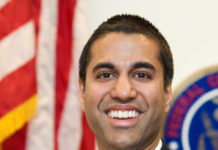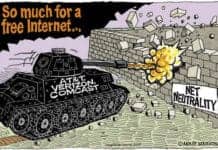-
Black consumers spend $2.2 billion with Toyota, yet Toyota refuses to thank Black consumers for their support
-
Black publishers and national leaders unite behind NNPA Chairman Bakewell to hold Toyota accountable
by Jasmyne A. Cannick, NNPA National Correspondent

This decision comes after months of meetings between Toyota executives and the NNPA, a network of 200 Black publishers representing over 19.8 million weekly readers, approximately half of America’s Black population.
“This is disappointing and intolerable behavior from a company who earned $2.2 billion from Black consumers last year and who was all too eager to send us their press releases and asking us to write stories and editorials to influence Blacks to remain loyal in their time of trouble,” said Chairman Bakewell. “But now that Toyota’s pain has been eased by a Federal Transportation Department and NASA report, once again the Black consumer and the Black press have been forgotten.”
Earlier this year, Toyota’s president and CEO, Mr. Toyoda, said, “Everyone at Toyota will continuously maintain a sense of gratitude to customers.”
Mr. Bakewell said, “Based on Toyota’s actions, it appears that Mr. Toyoda’s statement applies to everyone but the Black consumer.”
The issue first surfaced with Toyota’s unwillingness to run “Thank you” ads in Black newspapers. This was after Toyota spent millions advertising in white newspapers after last year’s safety recall.
“Black people stood by Toyota during their time of crisis to the tune of $2.2 billion,” said Mr. Bakewell. “Where is the thank you to Black consumers for their support and loyalty to Toyota? We just can’t stand by and let Toyota disrespect our people that way.”
“Based on Toyota’s actions, it appears that Mr. Toyoda’s statement applies to everyone but the Black consumer.”
NNPA publishers plan to run full page ads in their newspapers beginning next week in response to what they feel is another example of Toyota sending a clear and direct message that Toyota disrespects, undervalues and takes the Black consumer for granted. The ads will ask Mr. Toyoda to stop disrespecting and exploiting Black consumers – their customers.

“What Toyota is doing is reprehensible,” commented Robert Bogle, publisher of the Philadelphia Tribune. “If it’s so easy for Toyota to dismiss the Black press, no wonder they have no problem overlooking thanking their Black consumer base.”
Even though African Americans contributed $2.2 billion to Toyota’s annual sales, this was the second time that Black newspapers and Black consumers were not included in Toyota’s advertising campaign. The first being Toyota’s immediate response to its sticky gas pedal defect which resulted in full page newspaper ads in white newspapers in 25 cities.
According to research from leading automotive marketing research firm R.L. Polk & Co., Black consumers represent almost 10 percent of Toyota’s American market share. Fifteen out of every 100 Black consumers purchase a Toyota.
Last week, Toyota Vice-President of Product Communications Mr. James Colon left a phone message for Mr. Bakewell instructing him that he planned to reach out directly to NNPA’s publishers in an effort to bypass the organization’s leadership and speak directly to the organization’s member newspapers – an unprecedented move which clearly violates protocol.
In an attempt to defend the letter, Toyota spokesperson Mike Michels stated: “We communicate with advertising media directly all of the time, so a communication to a variety of news media of one kind or another I don’t think is unusual. The discussion with NNPA chairman and his negotiating team hasn’t had a satisfactory outcome certainly for NNPA. And so the purpose of the communication was to express our commitment to the African-American community and to reiterate that while it’s being said that we don’t have a commitment, we do indeed. Long story short, we wanted the members to know our side of the story.”

Peggy Hunt, publisher of the Tri-County Sentry in California, said that she was very offended by Mr. Colon’s suggestion that she break rank and not follow the strong and unwavering leadership of NNPA’s Chairman Mr. Bakewell.
“Mr. Colon wouldn’t and isn’t going to get us to break rank and support Toyota,” commented Hunt. “I was in the meeting when Mr. Colon committed to a partnership with NNPA and he has clearly broken his word. For Mr. Colon to then come back to the table with a drastically different proposal, offering us less than what we agreed upon while excluding prior conversations regarding an annual advertising schedule with Black newspapers directed towards Black consumers, shows that he and Toyota are taking the Black press for granted.”
“I am not surprised at Toyota’s lack of commitment,” said Walter Smith. “Toyota has a long history of insulting and ignoring African Americans. In 1985, the prime minister of Japan, Yasuhiro Nakasone, said that Japan was more intelligent than countries like the United States because they didn’t have a lot of Blacks, Puerto Ricans and Mexicans. He felt that ethnic minorities were low level and brought the intelligence quota down – an unforgivable statement. So what Toyota is doing with the NNPA is of no surprise to me.”
Currently, Toyota spends $1.6 billion annually advertising in America, of which $20 million is spent in total in Black media – including radio, print, television, and digital advertising. However, Mr. Bakewell pointed out, the media Toyota uses to reach Black people is not always Black-owned even though Toyota claims to spend $20 million on Black-owned media.
Burrell Communications, Toyota’s advertising agency of record for the African-American market, has repeatedly claimed that Toyota’s commitment to diversity is reflected in their partnerships with many highly respected minority organizations throughout the country.
“I was in the meeting when Mr. Colon committed to a partnership with NNPA and he has clearly broken his word. For Mr. Colon to then come back to the table with a drastically different proposal … shows that he and Toyota are taking the Black press for granted.”
And while calls to Burrell’s co-CEO Fay Ferguson were not returned, Toyota’s James Colon was quick to point out in his letter to NNPA’s publishers that through partnerships with Black organizations, Toyota has demonstrated their commitment to Black people.
Mr. Bakewell says that given the $2.2 billion spent by Black consumers with Toyota, he’s issuing a challenge to Toyota regarding the amount of money they spend with national Black civil rights organizations including the NAACP, Rainbow PUSH, National Action Network, National Urban League, UNCF, NCNW and others. A good start for Toyota would be to give each of these organizations $3 million annually. They do the business of defending and enhancing the quality of life for African Americans and our communities and they shouldn’t have to do that on a shoestring budget.

Many of NNPA’s publishers were shocked at the audacity of Toyota to bypass their elected chairman and leader – a move many say illustrates the disrespect that Toyota has for African Americans.
“It was very disrespectful to contact our membership directly and not go through our leadership which he [Mr. Colon] had been in constant contact with,” said Michael House, publisher of the Chicago Defender and chair of the NNPA Marketing Committee. “For him to disregard our leadership and our chairman and try to go to our publishers directly was disrespectful in the sense that it speaks to the old ‘divide and conquer.’ Trying to reach out to our membership individually was wrong, especially after our elected leadership had already spoken for our members.”
“NNPA is unified,” commented Mollie Belt, publisher of the Dallas Examiner. “We communicate with nearly 20 million Black people every week. We have the trust and respect of the Black community. We are the voice of Black people, and for Toyota to go around our elected leadership directly to our members shows a huge sign of disrespect. That would be like NNPA going over Toyota’s American representatives directly to Mr. Toyoda in Japan.”
NNPA Chairman Mr. Bakewell says that he plans to call on the chairman of the Congressional Black Caucus to request hearings regarding Toyota’s relationship and business practices with the African-American community.
“It was very disrespectful to contact our membership directly and not go through our leadership … in the sense that it speaks to the old ‘divide and conquer.’”
“And we will attempt to get a meeting with Toyota’s chairman,” said Mr. Bakewell, “including going to Japan if necessary. So if Jim Colon wants to play that game, we can play it too. We will ask the chairman of the Congressional Black Caucus to lead a delegation of Black newspaper publishers and leaders to Japan so that we can speak directly to Toyota’s leadership.”
“Black newspapers are tried, true and trusted when it comes to Black people in America,” said Mr. Bakewell. “We are the gatekeepers for reaching Black people. Ford and GM understand that, as do other corporations like AT&T and Wells Fargo. When corporations want and need to reach the African-American consumer, they see Black newspapers as the vehicle through which to reach Black people. Toyota needs to stop trivializing the power the of the Black press and understand that all we want is for Toyota to give Black people the same kind of respect and reciprocity that they give their white consumers.”
“We will not let up or relent until Toyota does right by our people, and I am not alone. I am 200 Black newspaper publishers strong, with the support of 19.8 million weekly readers throughout America,” stated Chairman Bakewell on behalf of the NNPA.
“Toyota needs to stop trivializing the power the of the Black press and understand that all we want is for Toyota to give Black people the same kind of respect and reciprocity that they give their white consumers.”
NNPA, the National Newspaper Publishers Association, serves nearly 200 Black newspapers. Read more stories from the Black press at www.BlackPressUSA.com.

 Store
Store













